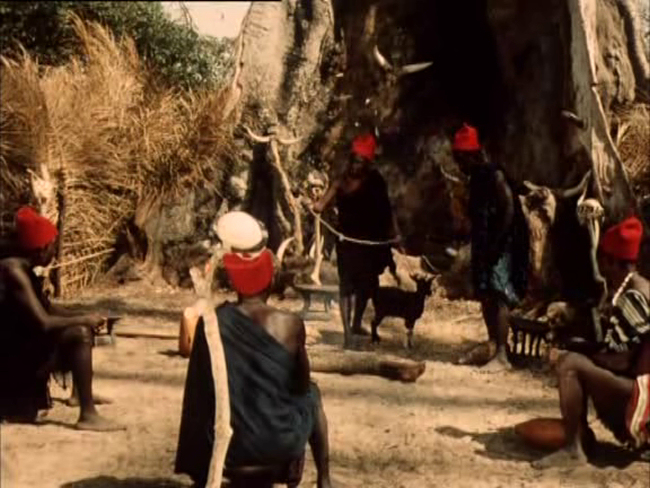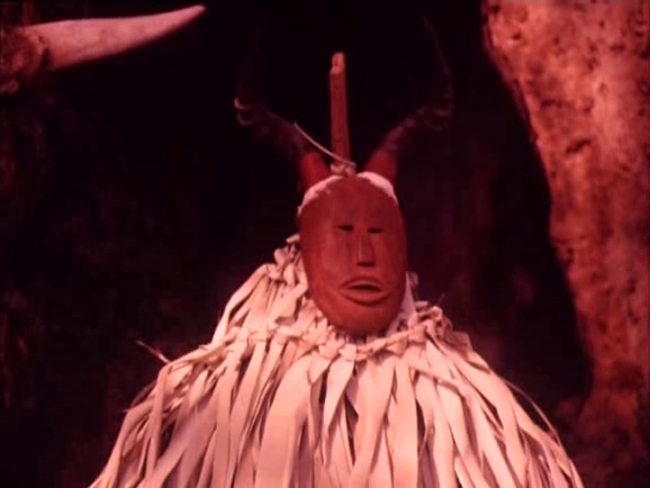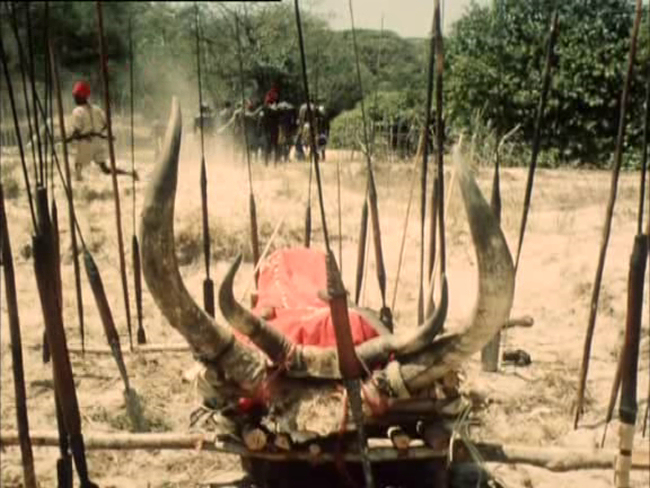
Rice is sacred to a Senegalese village in 1971's Emitai so when French occupiers try to commandeer the harvest for supplies during World War II the villagers hide it. This roughly shot film stars mostly non-actors to its detriment but being shot in an actual West African village with its actual inhabitants gives the film a nice documentary quality.
The story, from a few decades before the film was made, was probably familiar to the people on film as well. The rice is only the latest imposition by the French Commandant and his officers who've been press ganging men of the village into fighting for the war. Now the village is mostly made up of women and elder men.

The women are forced by the French officers to sit in the sun in a village square for long periods, held hostage while the council of elders debates what to do about it. In addition to debating, they also make animal sacrifices and an actual chicken and a goat were harmed and killed in the making of this film.

The goat is particularly hard to watch as its screams sound like a human child's.
Director Ousmane Sembene also departs from a purely documentary style to take us into the perspective of the elders as participants in a ritual. In parts of west Africa, certain individuals wore masks and became the gods, speaking as the gods in order to give council and render judgement in village disputes. Sembene puts a magenta filter on the lens and has half the council suddenly vanish and then the masked gods pop into existence one at a time.

The demand for rice is the symbolic last straw and the council and the gods refuse to yield. Sembene was also an author and I read one of his books, God's Bits of Wood, for the African Literature class I'm currently taking. The difference in how characters are crafted between Sembene's prose and cinema endeavours is enormous. Both stories deal with groups of people rather than focusing on individuals but God's Bits of Wood takes time to establish distinct and complex personalities. Emitai feels more like it stars a crowd of extras, the women don't seem emotionally invested in the defiant songs they sing and the village elders yell their lines at each other without much sense of reacting to one another. But on an obviously low budget Sembene comes up with some nice compositions with the natural beauty of Senegal and the artistry of the resident culture.


No comments:
Post a Comment